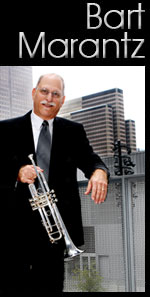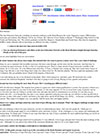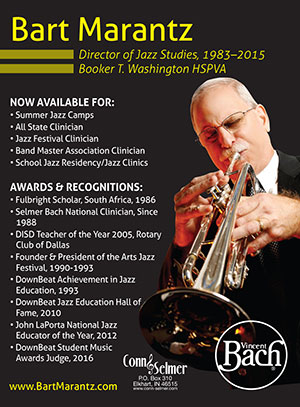 Home B.M.P. BTWHSPVA Articles Interviews Reviews Books Biography Videos Photos Calendar Music Links Contact Sara Marantz Matt Marantz Luke Marantz
Bart Marantz NPR/KERA Jazz Education Interview    Click below to listen to the interview  Click below to read the article 
|
Reviews “Way To Go" Written and Arranged By: Lennie Niehaus Instrumentation: Big Band Publisher: Kendor Music *Advancing Group Series Grade 3 1/2 Moderate Swing q = 152 $52.00 This chart contains an abundance of learning material that all musicians should have in their jazz vocabulary. The introduction uses a Charleston beat played by piano with rhythm section. This figure is developed in the orchestration throughout the first chorus. The melody is modal in style and uses skips of fourths quite a bit. The chords used are a series of minor sevenths, which later in the arrangement give the soloists a chance to stretch. The melody is played early in the chart by unison saxophones. Then the bridge goes to a completely different texture utilizing the brass section in unison octaves. The last section of the tune is played by unison saxophones – this time with the entire brass section playing with the previous Charleston beat. The solo section placed after the melody is written out for tenor saxophone and trumpet. For more extended solos, there are chord solo sheets provided for Eb instruments, Bb instruments and bass cleff instruments. If the director chooses, an entire 64-measure solo following the form of the tune, can be played with the rhythm section only. The shout chorus, beginning at measure 111, has interesting and unexpected rhythmic patterns. It also has indicated changes of dynamics, which the band should observe carefully to obtain the unusual effect composed by Lennie Niehaus. “Way To Go” has a well-written soli for saxes and contains printed changes or suggested solos for your improvisers. Remember though, that this is not a beginning chart by any means and will challenge even a good high school big band. With time on task everyone wins with, Way To Go.” Top note for trumpet is written D above high C (Last note written E above high C – optional) Bart Marant |


